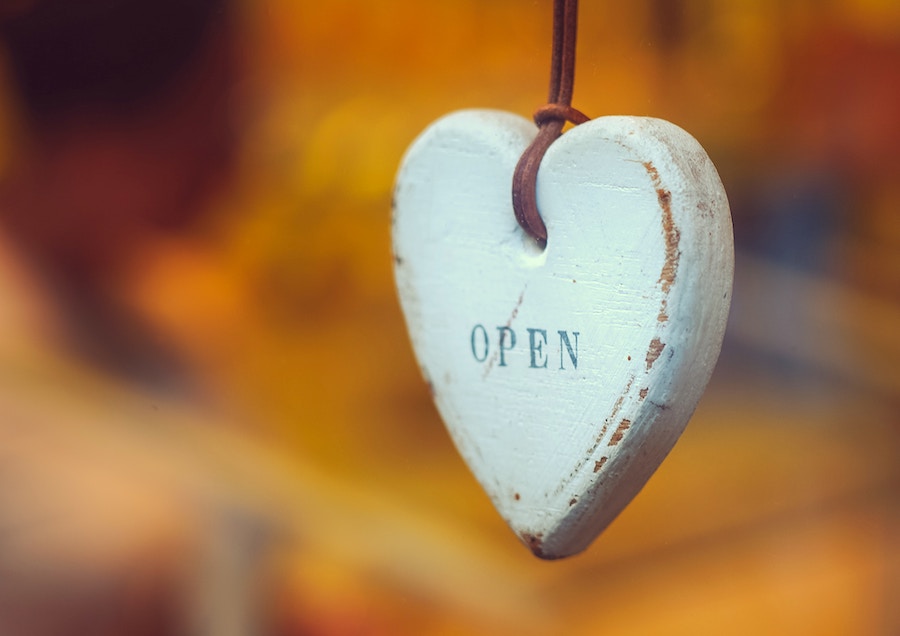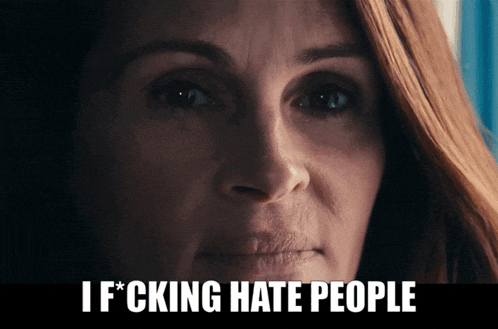Towards the end of last year, I had a revelation. I thought a great thought to myself.
One day, I thought – and it was a lovely day; a sunny sort of wonderful late spring day – I thought: what if people aren’t assholes*.
What if, I thought – and bear with me here – what if, I decided to go out on a limb and believe that, ultimately, every person I meet and every stranger I want to flip off for jumping a red light is generally the person that their most ardent loved one believes them to be?
What if they’re not operating off a selfish base of trying to ruin life? What if they’re not suffering a great emotional decrepitude? What if they’re not acting like utter morons because of an intellectual deficiency? What if – and this is wild – we’re just different or their blood sugar is low and they need a sarmie? What if there are actually very few truly bad people in the world and most humans are actually pretty decent types just trying to figure out meaning in the chaos that is living?
What if everyone is just doing the best they can, even if they’re being total shitbags?
Now, don’t get me wrong. This isn’t the ‘Just Be Kind’ WhatsApp group. This isn’t about modifying my behaviour to make someone else’s assumed life better. This is about modifying my own behaviour to make my life better.
Because perception really is two thirds of the game here on planet Earth, isn’t it? I’ve come to fully integrate the idea that in all things ‘as within’ truly is ‘as without’, and I will never tire of Anais Nin’s wonderful recreation of this: ‘We don’t see the world as it is, we see it world as we are.’
It’s been a fair bit of work getting to this point.
The fact is, I got a sizable piece of goblin glass in my eye as a kid. Some colourful childhood trauma in a GenX setting had its pros but one of them sure wasn’t naivete.

In fact, a few years ago, someone on Twitter called cynicism GenX’s love language and the truth of it stung a little. Because, although it’s not like I’m walking through the world always seeing the worst in everything, my MO is not terribly far from this.
If you’ve been set up to expect the worst from everyone, that’s what you’re going to be watching out for to avoid disappointment, right? You must, in effect, pre-disappoint yourself.
And that’s the soft heart of cynicism, I think. Because disappointment defends a squishy vulnerability: the hope for something better, whether that’s in life or just in the person sitting opposite you. Cynicism and pre-disappointment keep us safe because it’s easier to believe the good is not there at all than need it to be there and reach for it and find it missing.
In The Magus, Fowles’ Nick says: “All cynicism is a failure to cope – an impotence, in short; and that to despise all effort is the greatest effort of all.”
While cynicism might be a great tool in business, as a coping mechanism for everything else it is hard and limiting and draining.
It sets a person apart from the world and its living; it makes everything and everyone ugly and calls from people the darker part of themselves in response. Problematically, it’s more often considered smart and sexy and realistic than not. Cynicism is rarely questioned, and while nothing is expected of the cynic they hold always this unspoken demand for the world to prove them wrong. The stakes are always high no matter how much the cynic thinks they’re downplaying them.
Let me tell you, it’s exhausting.
The only way to short-circuit this, for me, has been the decision to accept my human need for hope and to face my total inability to cope 100% by myself in this chaotic and smelly business of living.
A few weeks back, when I had that revelatory thought about people not all acting from a base of assholery, I decided to try consciously changing my cynical thought patterns; to try a year of seeing the good instead of seeing and expecting the bad; to expect the best of humanity, not the worst.
I’m fairly confident this is something I can do but it’ll take some work. I’m not a fan of humans, generally speaking.
Now, let me just interject myself here by saying that I live the kind of life that would make this radical shift in perspective pretty easy.
First off, I’m a freelance writer, which means I don’t have to face an office full of people every day or deal with a boss or ‘engage effectively’ as part of a ‘highly dynamic team of LinkedIn assholes professionals’.
Much like the ascetic who lives a solitary life in a mountaintop cave and claims enlightenment but never goes down into town to have their ID renewed at Home Affairs, I’m rarely forced by circumstance to have prolonged dealings with people I just don’t gel with.
Second, I’ve spent a LOT of money regaining my mental and emotional sobriety to prepare for this. I’ve had lots of therapy and have all the tools and know what healthy boundaries are and know how to ask for help. If you’re similarly inspired to do drop the cynicism, make sure you’re similarly prepped. Cynicism is a defensive tool and you can’t just rip it away without dealing with what it’s trying to protect. You got to go easy when you’re trying to be a better person.
At least that’s what I tell myself as I step gingerly into each new day of seeing good where I can. So far it’s all looking pretty … good. I guess.
Let’s see what happens when I finally leave my house or start reading social media comments again.
Here’s to a brighter, happier, more rose-coloured 2024, yes?
t
x
* Actually, I thought: ‘What if people aren’t cunts?’ But I’ve learned to temper myself to accommodate for a broader range of sensibilities (and to repost these newsletters to social media a week later) and so I said ‘assholes’. But since you’ve read all the way to this point you deserve to know the truth and since I’m all about building a relationship based on honesty and trust etcetera etcetera, you should know it was ‘cunts’.
Photo by cyrus gomez on Unsplash

